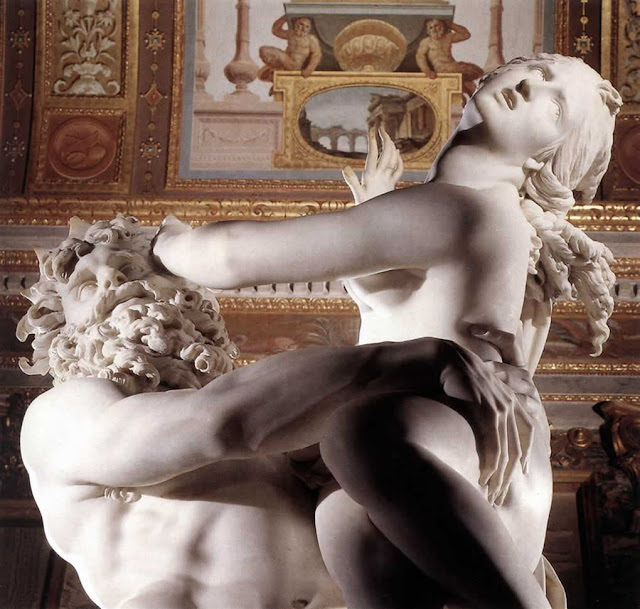But I'll try to give you an example.
Art is not only perfected in the tragic, one can attain peace or madness through the monotonous rhythms just as well as the , or in the droning separation of the instruments The greatest art tends to escape its genre, its type Wagner's Vorspiel is one with time; Nietzsche's tragedy is historic, which is perhaps why he never made use of it in his works.
The method is not universal, either can lead to enlightenment or catastrophe: Prometheus and Epimetheus are born of Cronus, and then divided by his very rule. Insight and instinct are, however, not divided in either of them, only the law of time. Epimetheus escapes punishment through his very being, while Prometheus endures the greatest punishment - one which may only be resolved through return to his brother and the reign of his father. And yet, even in their imprisonment their laws are an absolute.
Nihilism is the end of this struggle, the completion of divided time: the impossibility of overcoming the Tortoise becomes most apparent where Achilles closes in on him. The law of unity is also the law of the hunt, there is always a final act which may thwart all of our efforts. Accelerated time only appears where the realisation of fate escapes us - a world ruled only by memory and its being thwarted.
Here Nietzsche appears as the highest of the Last Men, in the unforgiving territory where a void appears in the world. But he cannot look away, and he is destroyed by what he sees; a Narcissus figure without a pool, instead dividing himself from the entirety of history. One who can only imagine himself as beautiful while being unable to sing either chorus of his age. This is the eternisation of the tragic, a catastrophe which only appears as an accident.
Holderlin's law of time was different. His art was of the precultic poets, and understood the absolute conflict completely - the violence of law that rules over both mortals and immortals. It was the death of man that caused his madness, the return of the First Age and its law, what no other man could possibly see. The return of Plato's laws in poetic form, but in a world of souls less than Iron. Singing a chorus that might be heard but would never have its antistrophe.
Before historical time the law of the tragic, just as the comedic, was that of apprehending, not revealing. Without this law of time the artistic method falls from its transitional form, becoming a thing-in-itself through which the decline of insight and instinct forms as a nihilism awaiting its return to creation. But one can still sense the old law, it is most present in the songs without resolution, whether in form or method. This was also the method of the Greeks, and perfected in the chorus - without respect for any single artistic type. Its intent was that of return to greater values, being apprehended by them. Today the irresolvable has been driven on to the complete opposite in relation to values, Nietzschean and Kantian in its type - the perfection of divided time. Nietzsche, the great dionysian of technique alone.


Comments
Post a Comment